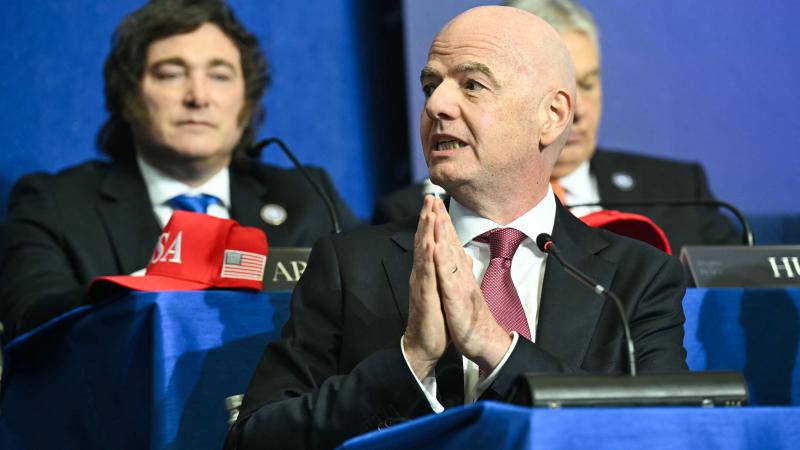Canada, Mexico leaders respond swiftly to Trump's tariff threat
Canadian Prime Minister Justin Trudeau said his talk with Trump "was a good call."
Following President-elect Donald Trump's threat Monday evening to impose 25% tariffs on imports from Canada and Mexico, the leaders quickly responded, with Canadian Prime Minister Justin Trudeau calling Trump the same day.
Trump said that he would impose new tariffs on imported goods from Canada, China, and Mexico during the first day of his new administration.
The former president, who won reelection earlier this month, said that the tariffs would be one of his first executive actions as commander-in-chief. He also pledged that the tariffs would remain in place until the border is secure and fentanyl stops flowing into the country.
"On January 20th, as one of my many first Executive Orders, I will sign all necessary documents to charge Mexico and Canada a 25% Tariff on ALL products coming into the United States, and its ridiculous Open Borders," Trump posted on Truth Social on Monday.
On Tuesday morning, Trudeau said he spoke with Trump on Monday night, saying, "It was a good call."
"We obviously talked about laying out the facts, talking about how the intense and effective connections between our two countries flow back and forth," Trudeau also said.
Mexican President Claudia Sheinbaum on Tuesday also responded to Trump's tariff threat.
"Caravans of migrants no longer reach the border," Sheinbaum said, noting that Mexico has done of lot of work to reduce the number of migrants passing through.
She also said that Mexico has had an influx of weapons smuggled into the country from the U.S., and the movement of drugs “is a problem of public health and consumption in your country’s society.”
“If a percentage of what the United States spends on war were dedicated to peace and development, that would address the underlying causes of migration,” Sheinbaum said.
“One tariff would be followed by another in response, and so on until we put at risk common businesses,” she noted, referring to U.S. automakers with plants in both the U.S. and Mexico.
“We negotiate as equals, there is no subordination here, because we are a great nation,” Sheinbaum said, adding, “I think we are going to reach an agreement.”
Abe Hamadeh, congressman-elect for Arizona's 8th Congressional District, told the "John Solomon Reports" podcast on Tuesday that for the Canadian and Mexican leaders to respond quickly "is going to be very powerful because come January 20th, I can guarantee you, Mexico is going to secure its southern border so that they can stop the caravans coming in from Central America, and they're also going to beef up security on their northern border, that borders the United States.
"Mexico understands that the United States has the leverage, and that we intend to use it in Canada, as well," Hamadeh added.
Bobby Charles, spokesperson for the Association of Mature American Citizens and former assistant secretary of state, told the "John Solomon Reports" podcast on Tuesday that Trump could use economic pressure to ensure that Canada protects the free speech rights of its citizens.
"Can Donald Trump, both by example and by diplomatic pressure and economic pressure, get Canada to think more in terms of living up to the kinds of rights for their people that Americans -- United States Americans -- have? Absolutely, he can."
















